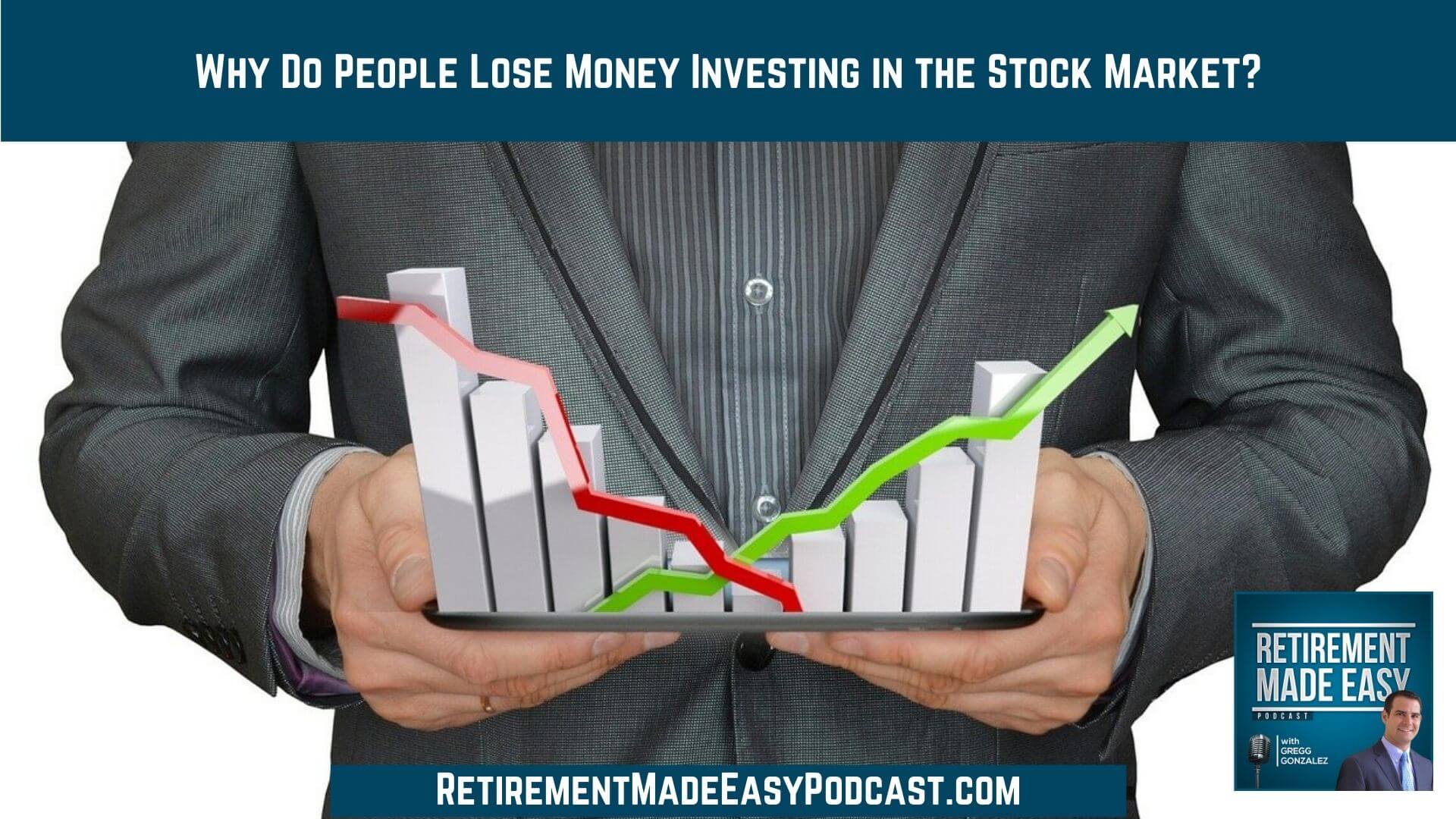
Why do some people have a bad experience investing in the US stock market? Why do they lose money? More importantly—how do they lose money? In this episode of Retirement Made Easy, I walk through the decisions that would lead someone to lose money in the stock market—and how to keep that from being you.
You will want to hear this episode if you are interested in…
- [2:31] What the research about the stock market tells us
- [6:26] Why people have bad experiences investing in the US stock market
- [10:05] BTN research on the S&P 500
- [12:20] How can you lose money in the stock market?
What the research tells us
The NYSE is over 200 years old. The S&P 500 was started in 1957. We have a long time period to look back and see how the stock market has performed. Research done by BTN shows that every time the market has gone down, it’s come back. Every time it’s come back, it’s set new record-highs.
So how do so many people lose money? Because fear is a bigger emotion than greed. Many investors are short-sighted and short-term focused. They’re more worried about losing money than making money. Peter Lynch was quoted saying, “More money was lost preparing for the next correction or crash than the actual correction or market crash itself.” I agree.
An old farmer on his porch was approached by a stranger who asked for a glass of water. The stranger asked how his corn crop was doing. The farmer said, “I didn’t plant any.” He was afraid of corn blight. The stranger asked how his soybeans were doing. His response: “I didn’t plant any of those either.” Why not? He was afraid it wouldn’t rain.
The farmer didn’t plant anything—he just played it safe. That’s how a lot of people invest in the stock market. They’re so worried about losing temporarily than the long-term growth potential. We know the down days are coming, but investing in the stock market is a marathon—not a sprint.
Why people have bad experiences investing in the US stock market
Investing involves subjective decision-making. It involves personal feelings, opinions, and emotions. An investor is swayed by headlines, news articles, and numerous things thrown their way. They make decisions based on these variables. You might see headlines “Market hits an all-time high.” Your opinion may be “If it’s at its high, I have to wait for it to go back down before buying in.” But what if it continues to climb? You missed your chance.
You’re making long-term investment decisions based on short-term attitudes, feelings, or opinions based on the current news or events. Successful investors make decisions based on long-term goals and plans. Failed investors base their decisions on short-term news.
How can you lose money in the stock market?
If you had invested in the S&P 500 index (that represents 80% of the US stock market), 40 of the last 50 years were positive. 80% of the time, you would’ve made money. The average annual return was 10.9% from 1971–2020. It’s remarkable. For someone who’s been investing for quite a while, your investments should have grown. The BTN research showed that the last of the last 18 years, 16 were positive. So how are people losing money in the stock market?
20% of the last 50 years, the market was down. The concept of loss-aversion has proven that the pain of losing money is psychologically twice as powerful as the euphoria of gaining money. It’s why many people choose not to take the risk in the first place.
Or—when there is a correction—they feel the pain and they abandon ship. They can’t handle it anymore and sell at the exact wrong time. It’s like trying to sell your house when the market is down. People give in to emotion, panic and get scared, and worry things will only get worse.
People are looking for certainty in a time of uncertainty, which is the wrong thing to do. You have to put blinders on to all the noise that’s out there. Take a deep breath and focus on your long-term goals and why you’re investing in the first place.
Resources & People Mentioned
Connect With Gregg Gonzalez
- Email at: Gregg@RetireSTL.com
- Podcast: https://RetirementMadeEasyPodcast.com
- Website: https://StLouisFinancialAdvisor.com
- Follow Gregg on LinkedIn
- Follow Gregg on Facebook
- Follow Gregg on YouTube



